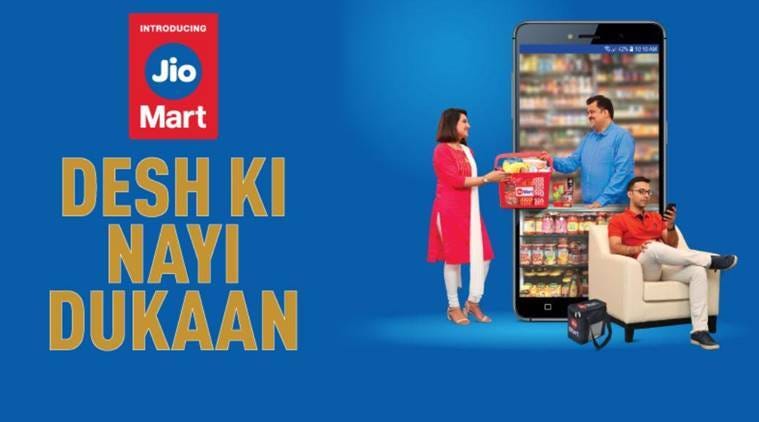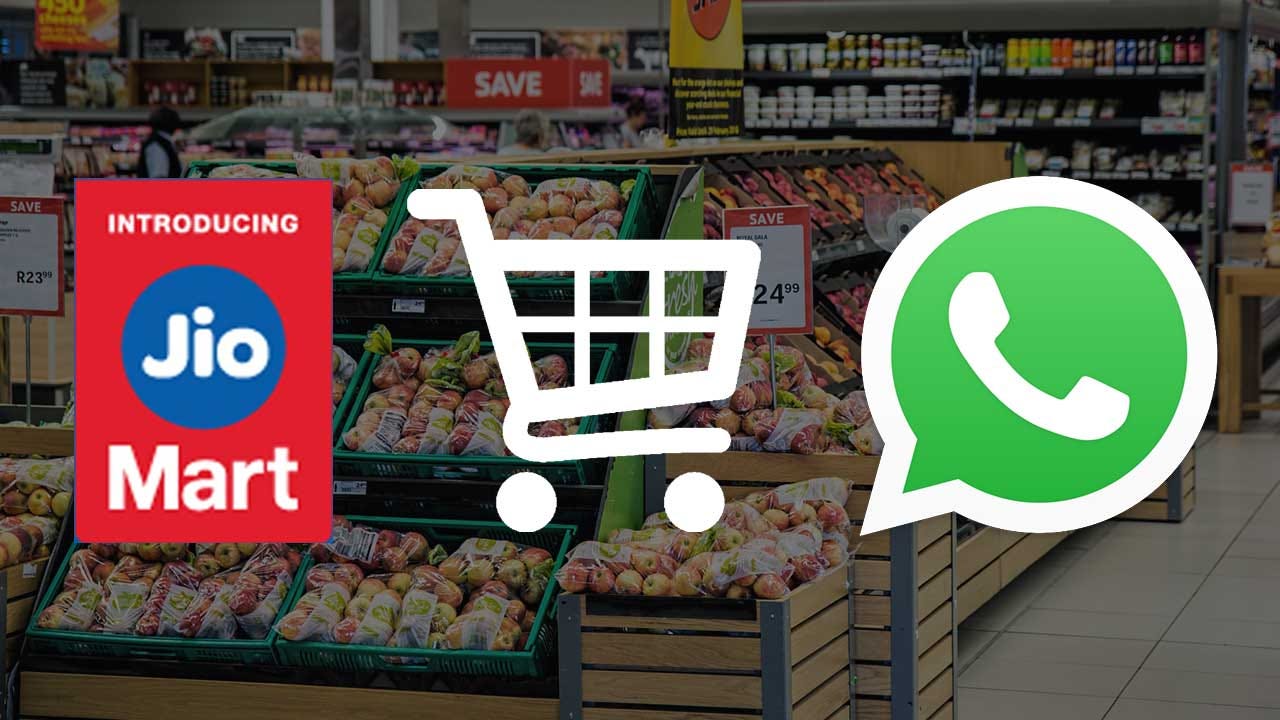2 days ago, Mukesh Ambani went out for shopping and bought 25% of Dunzo.
Why?
Let’s find out👇👇

Reliance has 3 main businesses right now:
👉Oil business(Reliance Industries)
👉Shopping Business(Reliance Retail)
👉Telecom business(Jio)
The Dunzo investment is related to the shopping business, so that will be the focus of today’s newsletter.
Reliance is very strong in offline shopping business: Reliance Retail has 12,000 stores across 7000 cities in India.
But online shopping? Not much.
In the past, Reliance has tried to get into online shopping by copying Flipkart and Amazon: Ajio and Reliance Digital are good examples.
But none of these attempts was successful. None of these attempts achieved Reliance’s ambition: market dominance.
Another point: online shopping is growing rapidly in India. Because Reliance has so much expertise in retail, this is a huge opportunity for them.
That’s why in December 2019, Reliance made another attempt to get into online shopping👇
🕹️JioMart
JioMart is Reliance’s latest entry into online shopping, and it is very different from Reliance’s earlier attempts.
This time, Reliance didn’t blindly copy other apps like Flipkart or Amazon. It had learned from its previous mistakes.
JioMart’s goal is to quickly deliver fresh fruits, vegetables, dairy items, etc to customers.
Sounds very similar to Bigbasket and Grofers, right?
The goal of JioMart, Bigbasket and Grofers is same, but their model is very different.
The model of Bigbasket/Grofers is: doing everything on their own:
👉They were buying items from wholesale on their own.
👉They were storing items in their own warehouses.
👉They were building their own quick-delivery service.
👉They were growing on their own.
If JioMart followed the Bigbasket/Grofers model and started doing everything on its own, it would take 1000 years for them to launch.
So JioMart did the exact opposite: it did nothing on its own.
This, my friends, is JioMart’s smart strategy.
This smart strategy is how they grew so big so fast.
And the investment in Dunzo? That is also a result of this smart strategy.
Let’s understand this smart strategy👇
🕹️JioMart’s Smart Strategy:
JioMart needed to solve 3 problems to become big:
The Supply chain problem: JioMart needed to buy supplies from wholesalers, take the supplies to warehouses for storage. Their warehouses needed to be near customers for quick delivery.
The Delivery Problem: JioMart needed to quickly deliver orders to customers. For that, it needed to build a whole delivery network: drivers, warehouses, optimum routes, etc.
The Growth Problem: JioMart needed to grow quickly to become the dominant market player.
These 3 problems are faced by every online shopping company. Bigbasket and Grofers had solved these 3 problems by doing everything their own.
JioMart solved these 3 problems by doing nothing on its own. Instead, at every stage, it partnered with someone who could help JioMart solve that problem. Let’s see how.
🕹️The Supply Chain Problem:
JioMart didn’t waste a lot of time and money trying to build a network of wholesalers and warehouses.
Instead, they partnered with 56,000 kirana shops.
Now, every kirana shop buys items from their own wholesalers, and store the items in the shop itself.
By partnering with the kirana shops JioMart automatically had a giant network of 56,000 wholesalers and warehouses throughout the country.
When you place an order on the app, JioMart sends your order to your nearby kirana shop.
The kirana shop takes care of the rest: stocking the items, storing them properly, and packaging them for delivery. JioMart doesn’t have to worry about these things.
The Growth Problem:
Bigbasket was launched in 2011, and has 6 million customers right now.
Grofers was launched in 2013, and has 3 million customers right now.
If JioMart applied the same growth strategy, it would take them many years just to catch up with the competition.
So JioMart partnered with WhatsApp.
Under the partnership, customers could order from JioMart directly on WhatsApp, and pay there itself. No need to download an extra app or do the payment somewhere else. Super convenient for customers.
By partnering with WhatsApp, JioMart got instant access to WhatsApp’s 500 million customers.
From 0 to 500 million in 3 years. Not bad🙂
Another benefit for JioMart: higher conversion rates.
People, especially in tier 2 and 3 cities, are more comfortable using WhatsApp. Ordering on WhatsApp is very simple for them. If they had to order on JioMart app, it would take some time to get used to the app’s layout and design. So JioMart would get higher conversion rates compared to its competitors.
The Delivery Problem:
By partnering with kirana shops, the supply chain problem was solved.
By partnering with WhatsApp, the growth problem was solved.
The only problem remaining was delivery.
Since JioMart mainly delivers fruits and vegetables and dairy, people want these items fresh. So JioMart needed quick delivery.
Now, JioMart could try to build its own quick delivery service, as Bigbasket and Grofers have done.
But they had a smarter strategy: Dunzo. Dunzo has one of the best quick delivery service in India. They have spent so much time and money to achieve this awesome delivery service. So why should JioMart build another delivery service?
That’s why Reliance invested $200 million in Dunzo.
Most news websites just wrote that “Reliance invested in Dunzo”. But this wasn’t just a simple investment. It was a partnership.
After the deal, JioMart gets access to Dunzo’s quick delivery service. And Dunzo gets access to JioMart’s huge customer base.
Now, a customer orders from JioMart on WhatsApp. JioMart sends the order to the nearby kirana shop. The kirana shop packages the order and hands it over to the Dunzo delivery guy. The Dunzo delivery guy quickly delivers it to the customer.
Our merchants will get access to the hyperlocal delivery network of Dunzo to support their growth as they move their business online through JioMart
-Isha Ambani
Conclusion:
Notice one thing? In this whole chain, JioMart doesn’t own anything. It doesn’t own WhatsApp, it doesn’t own kirana shops, it doesn’t own Dunzo.
It is only connecting kirana shops and WhatsApp and Dunzo. This is the brilliance of JioMart’s strategy. Without spending lots of time and money, they have grown so quickly in this highly competitive market.
Smart strategy, isn’t it?
This wraps up today’s newsletter. I hope you enjoyed reading it.
If you enjoyed reading this article, please share it with your friends. I’m sure they will also find it informative:
And if you’re new here, please subscribe- you get weekly deep dives on Indian startups:
What are your thoughts on this article? Let me know👇
My Twitter Threads of this week:




Follow me on Twitter for insightful threads:
Writing this newsletter after so long feels absolutely awesome🤩 Thanks for reading this newsletter and thanks for being a supporter! Bye bye and have a great day!









Just for your notice, there are few spelling mistakes like 'venetables','tgis'...
The article was good. I would also like to add a few points here.
1) I've never seen Jiomart deliver from local kirana shops. Every time I order they deliver from any Reliance outlets. So probably they use the kirana shops to deliver in cities where there is not any Reliance outlets.
2) I think Jiomart doesn't have access to all 500mn of Whatsapp users. Only people who have registered on Jiomart will be able to order on Jiomart. So, we can get higher conversion rates but not new customers.
3) Jiomart has also acquired a last mile logistics startup Grab before a few years. So, with Dunzo they are trying to speed up their delivery in prime cities.